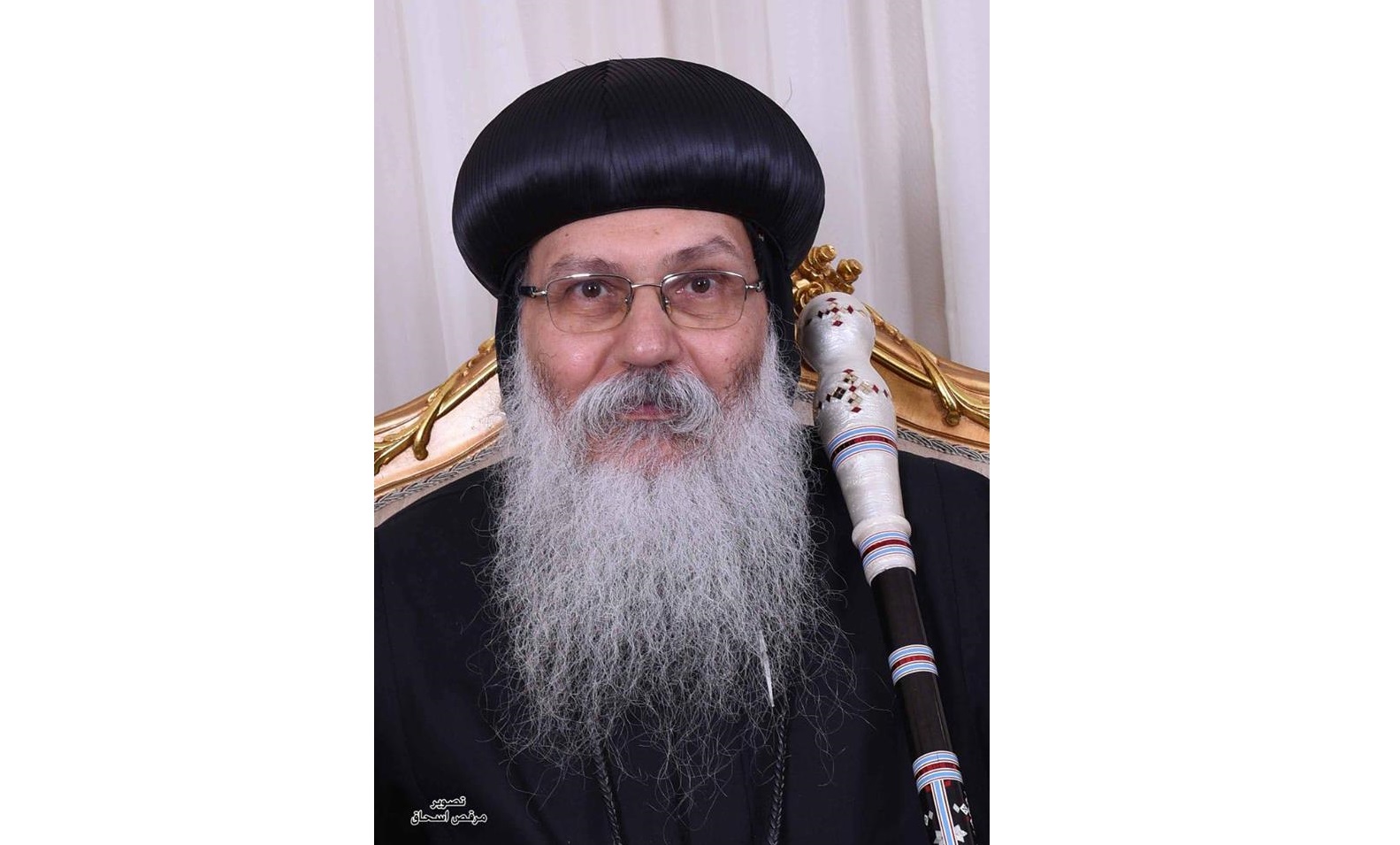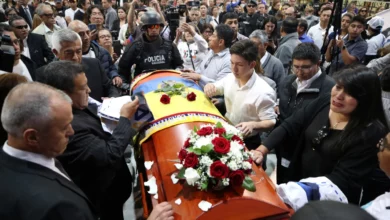
The team investigating the murder of Bishop Epiphanius, head of the Saint Macarius Monastery, is claiming that the two monks suspected of the murder had unsuccessfully attempted to murder the bishop twice. Defense attornies have denied the monks played any role in the murder.
Major General Khaled Abdel Hamid, who headed the investigation, told Damanhour Criminal Court on Thursday that the main suspect Ash’eyaa al-Makary (Wael Saad Tawadros), and the second suspect Faltaous al-Makary (Raymon Rasmy Mansour), failed twice as the victim woke up earlier than usual the first time, and later than usual the second time.
Abdel Hamid added that Tawadros had searched the internet for “how to erase one’s fingerprints from the crime tool”.
The two defendants allegedy attempted to murder Bishop Epiphanius due to financial disagreements, and other behavioral violations by the defendants that Epiphanius took action against, according to Abdel Hamid’s testimony.
Epiphanius reportedly received a complaint of financial violations by Tawadros, who owned a piece of land of 25 feddans near the monastery, estimated at LE3 million.
In February, Epiphanius also reputedly banned Tawadros from supervising the monastery’s poultry farm, due to financial violations, and he consequently issued a decision to transfer him to another monastery in Ismailia. The transfer decision, Abdel Hamid continued, was suspended upon a memorandum that Tawadros submitted to Pope Tawadros, to suspend the transfer.
Abdel Hamid denied that Tawadros had been subjected to any psychological pressure to push his confession during interrogations, contrary to his lawyer’s claims. He added that the tool used in the murder was found by the police upon the guidance of Tawadros himself.
According to Abdel Hamid, Mansour, the second defendant, had disagreements with Epiphanius after Mansour attempted to start an independent life outside the monastery, and built his own sanctuary on the olive trees garden affiliated to the monastery – in violation of its religious regulations. Epiphanius allegedly destroyed the sanctuary, and reported financial violations by Mansour, who supervised the olive garden.
The victim was killed by superficial wounds, suggesting a tool of murder such as an iron pipe, said head of Tanta’s Forensic Medicine Department, Nagwa Zakaria.
On the other hand, Tawadros denied his knowledge of the weapon used in the murder, and accused the police of fabrication. He claimed that the police foisted the murder tool.
Mansour also denied using his phone, seized by the police, adding that he did not remember its number.
On Thursday, the Damanhour Criminal Court adjourned the case to November 24.
During the first session of the trial back in September, the main suspect Tawadros also pleaded innocent.
Defense attorneys for Tawadros claimed that their defendant was forced into confessing, adding their client’s claims that he was tortured physically and psychologically by police during interrogations.
Bishop Epiphanius was found dead in July in front of his monastic cell at the Saint Macarius Monastery, Wadi al-Natroun. Monks at the scene immediately notified al-Natroun police, who discovered that the Bishop had fractures in the back of his skull, leading to suspicion of murder.
The Public Prosecution office in Alexandria concluded investigations into the case in August, and referred two monks to criminal trial over the murder of Bishop Epiphanius.
Mansour reportedly confessed to the killing in August, and was deprived of his ecclesiastical rank over behavior that violated his duties.
He claimed that he hit Epiphanius three times on his head using an iron tube, which was prepared for the crime, added that Mansour had been ensuring the coast was clear.
In the confession, Tawadros said that he worked alongside fellow monk Mansour to carry out the killing. Mansour later attempted suicide on August 6 to escape punishment, and underwent police watch at the hospital during recovery.
Edited translation from Al-Masry Al-Youm.




